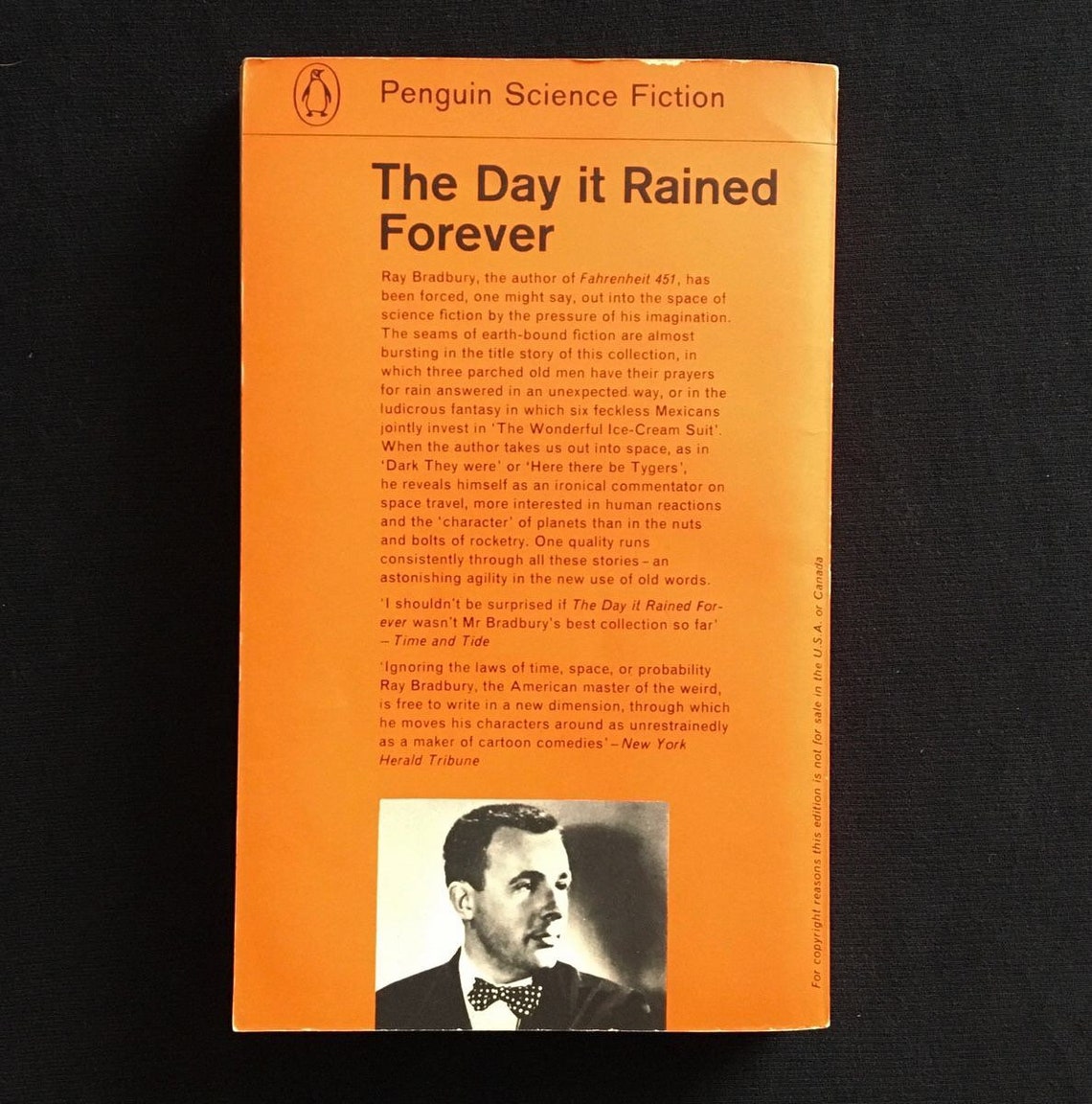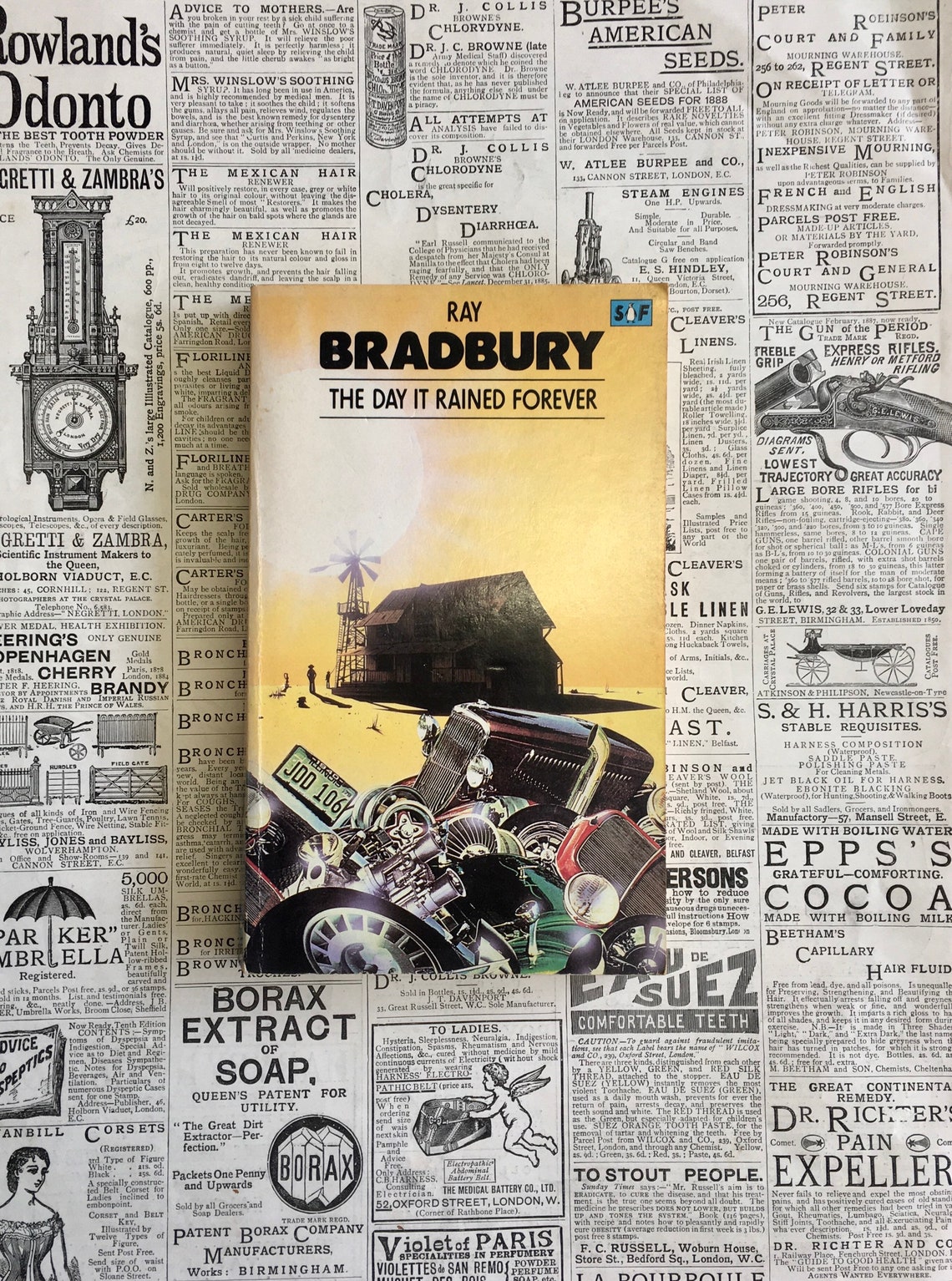

One of these latter stories was "The Million Year Picnic" (Summer 1946 Planet Stories). Much of his early sf was colourful Space Opera, and appeared in Thrilling Wonder Stories and Planet Stories.

Bradbury used occasional pseudonyms in those early years in non-sf magazines he appeared as Edward Banks, William Elliott, D R Banat, Leonard Douglas and Leonard Spaulding, and he wrote one story, "Referent" (October 1948 Thrilling Wonder), under the House Name Brett Sterling. All but four of the stories in the later The October Country (coll 1) had already appeared in Dark Carnival, but many were revised for this new book. Many of his early stories, mostly written 1943-1947, were collected in his first book, Dark Carnival (coll 19 cut vt The Small Assassin 1962), the book, from Arkham House, being one of the first individual volumes in America to contain anything like Genre SF or fantasy several of the stories here included had originally appeared in Weird Tales. All the same, he did write enough sf that he became and remained in memory a central figure in the Golden Age of SF. He later collaborated with her, completing her Lorelei of the Red Mist (Summer 1946 Planet Stories rev Fall 1953 Tops in Science Fiction original text 2017 dos).īy 1943 Bradbury's style was beginning to jell: poetic, evocative, consciously symbolic, with strong nostalgic elements and a leaning towards the macabre – his work was always more Fantasy and Horror than sf, with a high proportion of his voluminous output being Fantastika broadly understood. In that year he met a number of sf professionals, including Leigh Brackett, who generously coached him in writing techniques. His first professional sale was "Pendulum" with Henry Hasse for Super Science Stories in November 1941. Bradbury discovered sf Fandom in 1937, meeting Ray Harryhausen, Forrest J Ackerman and Henry Kuttner, and began publishing his Fanzine Futuria Fantasia in 1939. (1920-2012) US screenwriter, poet and author in 1934 his father, a power lineman who was having trouble gaining employment in Michigan during the Depression, moved with the family to Los Angeles memories and images of southern California would be central to Bradbury's work, though the small-town Midwest always remained important in his stories.


 0 kommentar(er)
0 kommentar(er)
